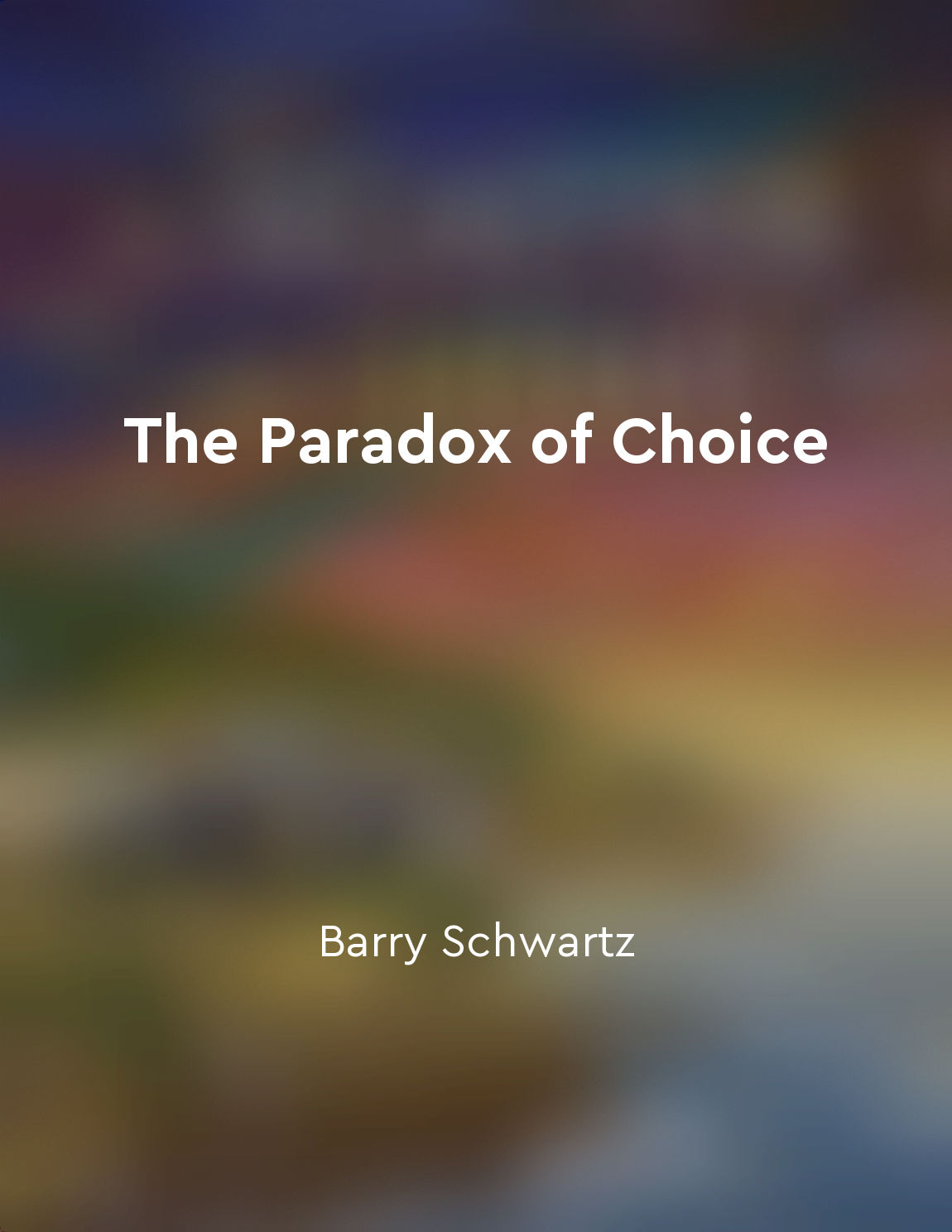Restricting choices can lead to more fulfilling outcomes from "summary" of The Paradox of Choice by Barry Schwartz
When faced with a myriad of options, we often believe that more choices will lead to better outcomes. However, this assumption is challenged by the idea that an abundance of choices can actually lead to feelings of anxiety, dissatisfaction, and regret. The reason behind this paradox lies in the overwhelming cognitive burden that comes with having too many options to consider. As psychologist Herbert Simon famously said, "A wealth of information creates a poverty of attention."When we are presented with numerous possibilities, we are forced to allocate our limited cognitive resources towards evaluating each option, weighing the pros and cons, and predicting the potential outcomes. This process can be mentally exhausting and time-consuming, leaving us feeling drained and indecisive. In the end, we may end up making a choice that is less satisfying simply because we are fatigued from the decision-making process. Moreover, the availability of countless choices can also lead to a phenomenon known as "decision paralysis." When faced with a...Similar Posts
Understanding deductive reasoning
Deductive reasoning is a method of logical thinking that involves drawing specific conclusions from general principles or premi...
Physical health is crucial for mental success
A robust physical constitution is the launching pad for mental prowess. The body is the vehicle through which the mind operates...
Desire
Desire is the starting point of all achievement. It is the first step towards riches. No one ever accomplished anything signifi...
Too many choices can be overwhelming
When faced with a multitude of options, we may believe that having more choices will lead to better outcomes. However, research...

People may struggle with feelings of inadequacy when faced with a wide array of options
When people are presented with numerous options to choose from, they may find themselves feeling overwhelmed and even inadequat...
Not all temptations are equal
In the realm of temptation, it is crucial to recognize that not all temptations carry the same weight. Some may be fleeting and...
Time
Think of time as a valuable resource that should be used wisely. Every minute that passes is a minute that you will never get b...

The freedom to choose can sometimes be burdensome
In a world where we are constantly bombarded with choices, it seems counterintuitive to suggest that having the freedom to choo...

Simplifying options can lead to increased contentment with choices
When we are faced with a multitude of options, decision-making can become overwhelming. The more choices we have, the more time...
